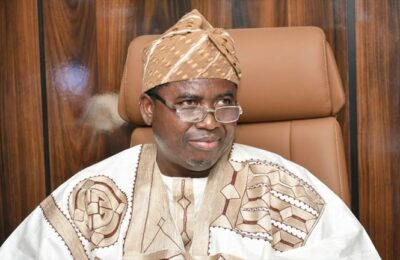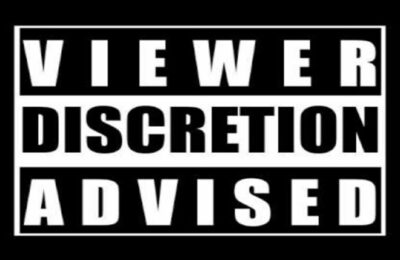The hardship experienced by Nigerians in the last one year cannot be forgotten in a hurry owing to the total removal of fuel subsidy by the federal government of Nigeria.
It is on the note that President Ahmed Bola Tinubu (GCFR) on May 29th, 2023, the day of swearing-in as the newly elected president of the federal republic of Nigeria made a pronouncement that “fuel subsidy is gone” while addressing the nation shortly after taking oath of office.
The president action has sparkled reaction from citizens. To some, the action is a welcome development that will help the nation in building a non-monopolist oil market in Nigeria. Contrary to this opinion, some sees it as a way of making life difficult and unbearable for average Nigerians owing to the fact that the removal of fuel subsidy will lead to increase in pump price which will amount to increase in market price of goods and services.
The Federal Government of Nigeria has assured the citizens of prompt action noting that the pain being experience by Nigerians over the removal of fuel subsidy will be temporary. On August 1, 2023, President Tinubu, in a nationwide broadcast revealed that the federal government has saved #1tn in the two months (June and July) since the removal of the petrol subsidy. Federal Government had come out to speak on the money saved so far . FG said the money has been given to state governors to help cushion the effects of subsidy removal. This is visible in terms of allocation received by state Governors previous months.
The official subsidy removal by the federal government has led to the increase in price of petroleum products. Not only increase in pump price but Nigerians also witness scarcity of the product amid high cost in pump price.
According to a monthly report from the Nigeria Bureau of Statistics (NBC) shows the average price of petroleum products between April 2023to April 2024.
An average retail price paid by consumers for Premium Motor Spirit (PMS) also known as petrol, in the month of April 2024 was #701.24. This indicated 176.02 percent increase when compared to the value recorded in April 2023, which was #254.06. Automotive Gas oil (Diesel) rose from #654.48 recorded in April 2023 to #842.25 per litre, an increase of 28.69 percent. Household kerosene (HHK) stood at #1,439.64 in April 2024, showing an increase of 6.29 percent compared to #1,354.40 recorded in March 2024 while the price of refilling a 5kg cylinder of Liquefied Petroleum Gas (cooking gas) declined by 1.06 percent on a month-to-month basis from #6,521.58 recorded in March 2024 to #6,521.58 in April 2024.
Amid this enormous price of fuel, scarcity of petrol hit Nigeria in April 2024 when motorist queued for hours to get fuel into their cars. The scarcity led to increase in pump price of petrol in many part of the country where the price rose to average of #950 per litre.
The transportation sector is not an exemption of the case. The cost of transporting people and their goods is quite alarming due to inflation on market price. A journey which is less than two kilometers is charge for #500. The passengers and other road users are complaining on enormous amount they are being charged by motorist. Motorist on the other hand attributed the high cost of transportation to high cost of petrol, cost of spare parts and poor road network.
The Nigeria currency keep depreciating against foreign currency on daily basis. US dollar exchange rate has risen to climax within a year. The average US dollar to Nigeria naira exchange rate in 2024 was one US dollar to #1,283.94 Nigerian naira, compared to Nigeria exchange rate against USD averaged #460.702 in May 2023.This has pose a lot of inflation on importation of goods into the country.
It affected Nigerians so badly looking at cost of goods and services especially imported goods. Though government had close boarders, still, we have goods been imported into the country.
Nigeria market has witnessed a drastic and skyrocketing price of goods and services within the last one year of subsidy removal. Nigerians have witnessed high level of hunger ravaging in the country. It has become a difficult situation for average Nigerians to afford one meal not to talk of three square meal per day. The skyrocketed price of food items in the market is so enormous compared to previous years.
National Bureau of Statistics (NBS) report that price of rice, garri, tomatoes, beans, yam and other food items increased in April 2024. NBC said this in its selected food prices watch for April 2024.
The report said that the average price of 1kg of local rice increased by 155.93 percent from #546.76 recorded in April 2023 to #1,399.34 in April 2024.1kg of white garri increased by134.98 percent on a year on year basis from #362.50 recorded in April 2023 to #851.81 in April 2024. 1kg of brown beans increased by 12.44 percent from #1,234.40 recorded in March 2024 to #1,387.90 in April 2024.
In addition, the average price of 1kg of yam tuber rose by 154.19 percent on a year on year basis from the #444.69 recorded in April 2023 to #1130.37 in April 2024. Other food items like palm oil, vegetable oil has also increased in price.
Bringing the statistical review of NBS on cost of food items to reality, an interactive section with some students and members of Anyigba community in Dekina local government of Kogi State have it that the price of goods and services in the community increases almost immediately President Tinubu made the pronouncement of subsidy removal.
On 29th of May 2023, pump price of petrol rose to average of #550 in most filling stations in Anyigba community. Some filling stations seize to dispense their old stocks hoping to dispense as soon as new pump price is out. Market people are not exempted as they inflate the price of their old stock.
Within the last one year, price of petrol in Anyigba doesn’t have a fix price ad different filling stations sells at average of #700 per litre when report have it that the average pump price in many part of the country stood at #570 including Abuja, Lagos and others.
Considering the economic effect of subsidy removal in an academic environment, Emmanuel said “the increase in fuel price as a result of fuel subsidy has led to high cost of living especially for students of Prince Abubakar Audu University (PAAU).” He emphasised on the increase in price of goods and services. “As we speak, a cup of rice that was sold for average of #120 early last year is now sold at #250 not to talk of other food stuffs including vegetables such as tomatoes,” Emmanuel added.
Looking at the price of transport service within the campus Emmanuel stated that the cost has rose beyond capacity. “Now that pump price has increased, the daily cost of living for students had also increase. The initial cost for bike drop that stood at #100 early last year has skyrocketed to #200, that is 100 percent increase within the first quarter of 2024. It has caused a lot of setback on learning activities of the students. Many students who cannot afford the high cost of transportation now have to transport on feet to school causing many to come late to class, many even miss test.”
Another source who wish to remain anonymous stressed that the cost of journey and other essential services has increase on the last one year. She emphasis on cost of buying water on daily basis is money consuming. She added that the geographical location of the community contributed to scarcity of water in the environment. Other students lamented on the hardship they face on daily basis in the course of their study. They condemned high cost of printing, stationary and charging of gadgets on campus. Epileptic power supply was mentioned as one of the challenges they faced as student in the course of their study.
Reacting to high cost of printing, a computer operator also refers to as business center attributed the increase in service price to cost of petrol and other printing materials. “ We as business owners are not happy with the increase in cost of our services. The cost of A4 paper, toner down to staple pin and other needed materials have increase. Though customers especially students still patronize us but the expenses we make these days are more than before when we charge lesser.”
Also analysing the hardship caused by the fuel subsidy removal, campus base commercial bike rider express dissatisfaction over subsidy removal.
He said “we are really affected with the removal of subsidy because price of things have increase. The cost of spare parts has increase not to talk of the motorcycle itself.” He further that, the economy hardship make most of okada riders to be subjected to purchase of motorcycle in installment which has an added charges from the actual market price. “ There is nothing we can do than to increase our service price as a result of high cost of petrol and other essential things we use. We are in it together,” he concluded.
The recent increase in crime rate can be largely related to high cost of living. Many Nigerians ventured into one criminal activity or the other as a means of surviving the terrible situation in the country. Our roads and tracks are no more save for travellers owing to high rate of kidnapping and banditry. The perpetrators collects huge amount of money as ransom before setting the captives free. Many engage in such act to define means of livelihood to meet with the economic hardship in the country. Nigeria has witnessed several cases of kidnapping and killings in the last one year. People can no longer sleep with their two eyes closed due to insecurity in the nation.
All this happened in a country where there is controversy over the increase of minimum wage for workers from #33,000. A country with high rate of unemployment, as a matter of fact a developing nation.
The future seems to be gloomy, doomed and uncertain analysing peoples perspective over the present state of the nation’s economy.
By Abiodun Martins Oke




